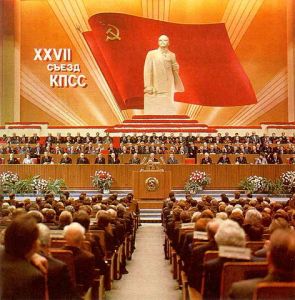Like a moth drawn to the flame, I recently attended a debate between three candidates for Governor of the State of Georgia. The event was held at the Cobb Energy Centre (why, oh why do they do that sniffy Centre stuff?) and it was an interesting experience.
As is my custom, I got there early, nosed out a cup of coffee and settled in on a bench outside the ballrooms where the event was being held. As show time approached, the candidates arrived and were led back to a holding room behind the debate site. First to arrive was Nathan Deal, who did something rather interesting. As he was walking by my coffee drinking spot, he pointedly came over to greet me individually, which, as it turns out, impressed me. Obviously this is part of his No Voter Left Behind act.
Second to arrive was Roy Barnes, who could be heard long before he made the walk down the hall. He and his entourage looked over at me, smiled and kept moving. There was that quizzical “Who the hell is he?” look on their faces. I’m quite accustomed to this and actually like it that way. I’ll never be an I. F. Stone; I’m much closer to being the modern day Milton Frisch (who was an avid letter-to-the-editor type in 1960’s Atlanta). I could do a lot worse.
Last to arrive was John Monds. Deal and Barnes have held numerous political campaigns before, and it shows in their general composure. Monds, on the other hand, is relatively new to this, and he walked in with his entourage, deep in conversation and preparation. Not a surprise.
The debate room was modestly large, in the event that a large number of people showed up. Which they rarely do.
The fact that the crowd was relatively small was not a surprise. First, the weather was very decent instead of blazingly hot, it was a Saturday afternoon and the subject was Georgia politics. I did see some young people in the audience, along with at least two sets of parents with their children, but overall, the crowd was older and whiter than average.
Because the debate sponsor was the Medical Association of Georgia, there were a goodly number of physicians there, all with basic convention name tags. The political types were easier to spot, since they were dressed up as if going to work, which they were, and their little plastic name tags that help countless other political types remember just who they were talking to.
The moderators for the debate were the AJC’s Kyle Wingfield, news babe Wendy Saltzman (CBS-affiliate station) and news babe John Bachman (ABC-affiliate station). Here, they prepare prior to the debate:
Wingfield has been the AJC’s conservative columnist for a couple years now and does a good job with it. Saltzman has developed a reputation for being just a bit pushy. Bachman, scion of other broadcast types, observed in the introductions that he had originally been in pre-med but had later gone into television. I suspect that several of the doctors present quietly thought to themselves: “Hmmmm, the money’s almost as good and there are fewer lawsuits.”
Gathered at the back of the room were more of the media types:
 In general, this is the place to be. If things get really boring, you can make a quiet exit. There can often be interesting side-bar conversations and football game reports back there, too. The idea is to stand around with your hands in your pockets, looking bored. That said, it should also be noted that people don’t really change all that much. Consider the local news woman who took prodigious notes on a steno pad during the entire debate, clearly the same one who sat in the front row of that Sociology class in college, taking copious notes. And, just like college, I’m there without pen nor paper, just taking it all in.
In general, this is the place to be. If things get really boring, you can make a quiet exit. There can often be interesting side-bar conversations and football game reports back there, too. The idea is to stand around with your hands in your pockets, looking bored. That said, it should also be noted that people don’t really change all that much. Consider the local news woman who took prodigious notes on a steno pad during the entire debate, clearly the same one who sat in the front row of that Sociology class in college, taking copious notes. And, just like college, I’m there without pen nor paper, just taking it all in.
Things got underway promptly at 1:00 PM, with an introduction by Gary C. Richter, MD, the current President of the Medical Association of Georgia.
Although introduced as the “Three candidates for Governor”, there are, actually, five:
- Nathan Deal (R) – Congressman, Ex-State Sen., Ex-Juvenile Court Judge, Attorney & Army Veteran
- Roy Barnes (D) – Ex-Governor, Ex-State Sen., Ex-State Rep. & Attorney
- Neal Horsley (Creator’s Rights) – Evangelist, Pro-Life Activist
- John Monds (Libertarian) – Grady County Planning Commission Member & ’08 PSC Nominee
- Sam Hay III (Write-In) – Environmental Activist, Retired Businessman & ’02 Candidate
No word yet from the Socialist Worker’s Party or the Whigs. And, there’s no telling just what would have happened if the evangelist or the environmentalist had appeared on the dais. In any case, having all five candidates would have been unwieldy, at best, and unfortunate at worst. Given the current state of political affairs, it also made sense to have the Libertarian candidate present. Although not a prominent presence in Georgia, the tea party movement is out there, an entity which is not clearly a Republican phenomenon and most certainly not a national Democratic one.
There is the dawning recognition that the issues may not strictly be the provenance of Left or Right. I suppose that it all goes back to the fact that we have two eyes, two ears and such. If we had three hands, it would seem likely that we would have Left, Right and Other, which would open up all sorts of political avenues for us. But, I digress.
In a way, these debates are always strikingly ordinary and predictable. And I would not have it any other way. The people that attended were genuinely interested in the candidates, these were not people that were just passing by and decided to stop in to see what was happening. And, based on those that I saw there, this is a very good thing. The crowd was well behaved; polite applause would periodically occur, but there were no hoots and catcalls. If this is the voting electorate, I have confidence in the future, for they were thoughtful and interested.
Of course, the media covers these events because they have to, and because there’s always the limited possibility that some candidate will veer abruptly off of their talking points and say or do something startling. Sometimes it will be newsworthy and sometimes it will be fodder for wretches such as myself. Film at 6:00.
The debate itself was predictable and well mannered. The focus groups have been telling the politicians that they’re tired of the fractious behavior, and that message seems to be getting through. Everybody was well behaved, and that is a good thing.
As I listened to the candidates, I could get the sense of their experience level. Barnes has more experience at the gubernatorial level, Deal at the Congressional level. If you’re a Deal supporter, his Congressional experience is a positive; Barnes supporters would say that this doesn’t apply for the Governor’s office. Barnes’ previous gubernatorial experience counts as a plus if you’re one of his supporters, a negative if you’re not. He did leave office previously against his will. Both clearly have depth of experience, good and bad. Barnes invoked the name of Richard Russell, and I wondered how many people in the room knew who that was. Certainly a lot of the audience knew, but I’m not so sure about how many in the media knew that name and the reverence that it earns.
Monds has some experience, but not yet enough and certainly not enough to break the two-party character of this election. I am hoping that we have not heard the last of John Monds. What I particularly like is the fact that his racial background has never been mentioned, a clear expression of the Libertarian philosophy that it is the individual and their ideas that matter.
On an emotional level, I want to like the Libertarians, but I can’t do it on an intellectual level. There’s just not enough different to justify my vote. Third party movements have always had a hard time with this, defeating the sense that you’re “throwing your vote away”. At the same time, the tea party movement has gained traction, maybe not enough to get elected but certainly enough to affect policy with the two major political parties. I suspect that after the November elections, this movement will quietly disappear, but the lessons that it taught will not be gone. In that sense, the tea party may have already succeeded in doing what needed to be done. So, too, the Libertarian voice needs to be there, just to remind everybody that government can’t cure all that ails us.
And, remember, this year is a Census year, and the next session of the General Assembly will be determining the State’s voting districts for the next ten years. Who is Governor will matter in a number of ways.
The debate ended as promptly as it started and I left with a feeling that this had been a worthwhile experience, but it was more than that. I eventually realized that what had left me with a good feeling was that to get into the debate hall did not require passing through a security checkpoint. People just walked in, sat down and listened. To be sure, there were uniformed officers present, but their presence was as low key as the crowd.
In this day and time where fear is exploited, the Medical Association of Georgia Debate was just an exchange of ideas. It was well mannered and thoughtful, but it was more than that. There was a physical connection between the participants and the listeners. It was not adversarial, we were all citizens gathered together to discuss the issues of our society. It was us, not us and them.
Consider the venues for local school boards, which have a Chinese wall and moat between the Board members and the general public. So reminiscent of other places:
That said, I do have the usual perverse thought. If any organization really wanted to draw a big political crowd, they could do no better than to stage a Texas Death Match, complete with chain link fence, between , say, Arianna Huffington and Ann Coulter. This match would include bikinis, drilling mud supplied by Halliburton, grilled sausages by Johnsonville and beer from Dogwood. Now, that would draw a crowd.
By the way, if you want the straight coverage of the event, please see here.






You must be logged in to post a comment.